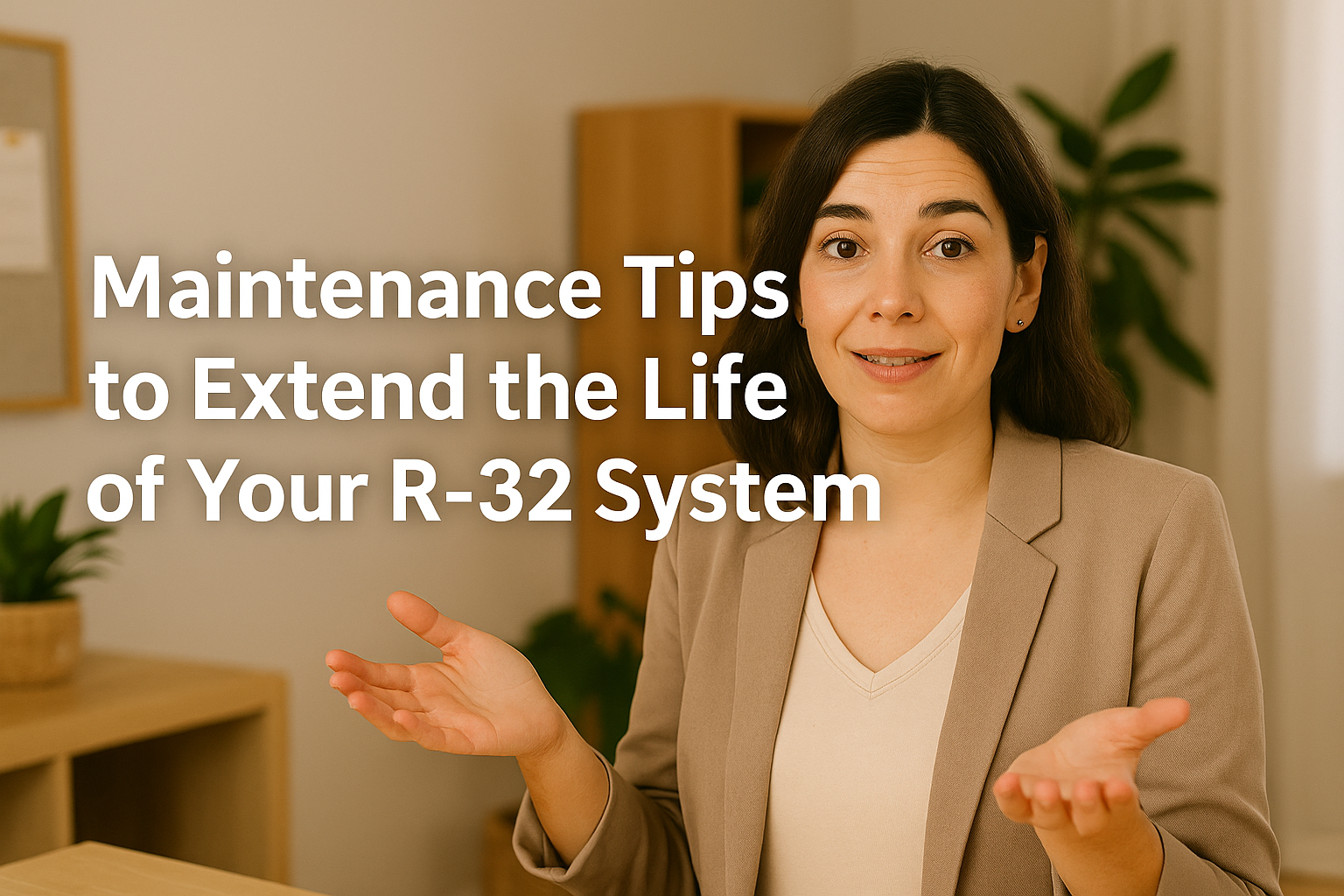An HVAC system is a major investment—and like any investment, it performs best when it’s maintained properly. R-32 systems, in particular, are built for efficiency and longevity, but they still require consistent care to run at their full potential.
In this guide, you’ll get expert-backed, actionable tips to keep your R-32 AC or dual fuel system in peak condition—saving money, improving indoor air quality, and maximizing performance year after year.
🔄 Why Regular Maintenance Matters
Neglecting your HVAC system shortens its life and racks up avoidable costs. A well-maintained R-32 system:
-
✅ Lasts 15–20 years or longer
-
✅ Maintains peak SEER2/HSPF2 performance
-
✅ Uses less energy
-
✅ Avoids expensive breakdowns
-
✅ Protects warranty coverage
🗓️ Seasonal Maintenance Checklist
Here’s a smart, year-round maintenance calendar Savvy swears by:
🧼 Spring / Early Summer (Cooling Prep)
-
Clean or replace air filters
-
Clear debris from outdoor condenser unit
-
Inspect refrigerant line insulation
-
Schedule a professional tune-up
-
Test thermostat functionality
🔥 Fall / Early Winter (Heating Prep)
-
Check furnace burners and flame sensors
-
Clean blower motor and housing
-
Inspect heat exchanger for cracks
-
Confirm CO detector operation
-
Test dual fuel switch-over logic (if applicable)
📘 Refer to ENERGY STAR’s HVAC Maintenance Checklist for a printable guide.
🧰 Monthly To-Do’s for Homeowners
Even between seasons, monthly maintenance goes a long way:
-
🧽 Inspect air filters (replace every 30–90 days)
-
🌿 Trim vegetation at least 2 feet around the outdoor unit
-
🧴 Check drain lines for algae or blockages
-
💡 Listen for unusual sounds like rattling, grinding, or hissing
-
🔧 Tighten any exposed register screws or duct gaps
Simple actions prevent long-term damage and keep energy bills in check.
❄️ R-32-Specific Maintenance Considerations
R-32 refrigerant is low-GWP and high-efficiency, but as a mildly flammable (A2L) refrigerant, it comes with specific service protocols:
📏 System Charging
-
Must be charged by weight, not pressure
-
Requires R-32-compatible gauges and recovery equipment
-
Always performed by an EPA 608-certified technician
📗 See ASHRAE’s R-32 Safety and Service Guidelines for technician requirements.
🧪 Leak Detection
-
Uses electronic detectors tuned for R-32
-
Repairs must comply with local code and manufacturer guidance
If you smell something odd, or the system isn’t cooling as expected, shut it down and call a licensed HVAC pro right away.
📶 Smart Thermostats: Use Them to Monitor Performance
If your R-32 system includes a smart thermostat, you already have a built-in maintenance assistant.
Features to enable:
-
Air filter replacement reminders
-
Humidity monitoring
-
System runtime alerts
-
Energy use tracking
Popular smart thermostats like ecobee, Honeywell T10, and Nest can all integrate with dual fuel systems and provide remote diagnostics.
🔌 See ENERGY STAR’s Guide to Smart Thermostats for setup tips and benefits.
🔧 When to Call a Pro
Some things are best left to licensed HVAC technicians. Call in the pros if:
-
Your system won’t turn on
-
There’s ice on the refrigerant lines
-
You smell burning or gas
-
Your thermostat is unresponsive
-
Your energy bills spike unexpectedly
Even if everything seems fine, a twice-yearly professional inspection is recommended for warranty compliance and performance optimization.
🧰 Use Angi’s Directory of Licensed HVAC Technicians to find a certified contractor in your area.
🧾 Keep Maintenance Records for Warranty
R-32 systems from manufacturers like those sold at The Furnace Outlet typically come with 10-year limited warranties—but only if:
-
Installed by a licensed contractor
-
Registered within 60–90 days
-
Routine maintenance is documented
Keep records of:
-
Service visits
-
Filter changes
-
Part replacements
-
Thermostat upgrades
📁 Store these in your HVAC folder or cloud drive—it’ll come in handy for both warranty claims and resale value.
💡 Pro Tip from Savvy
“Don’t wait until it breaks. Maintenance is cheaper than repairs—and smarter than surprise bills.”
— Savvy
If you’re already investing in a high-efficiency R-32 system, go the extra mile with simple, proactive care. It pays off in comfort, longevity, and peace of mind.
🛠️ Maintenance Tools You’ll Want at Home
| Tool | Why It Matters |
|---|---|
| Extra Air Filters | Replace monthly or as needed |
| Coil Cleaning Spray | For outdoor unit maintenance |
| Wet/Dry Vacuum | Clears drain lines |
| Digital Thermometer | Check supply/return air temps |
| Smart Thermostat App | Monitor runtime and get alerts |
Want to level up? Consider installing an in-line air purifier or UV light system to further protect your indoor air and system internals.
✅ Quick Summary: How to Extend System Life
| Action | Frequency |
|---|---|
| Replace air filters | Every 30–90 days |
| Clean outdoor unit | Spring & Fall |
| Schedule tune-ups | Twice a year |
| Test thermostat & switches | Quarterly |
| Keep system records | Always |
By investing just a little time each month, you can easily stretch your R-32 system’s lifespan past 15 years—and maintain its like-new performance year-round.
In the next topic you will read about: Understanding SEER2 and Why It Matters for Your Next AC Purchase







